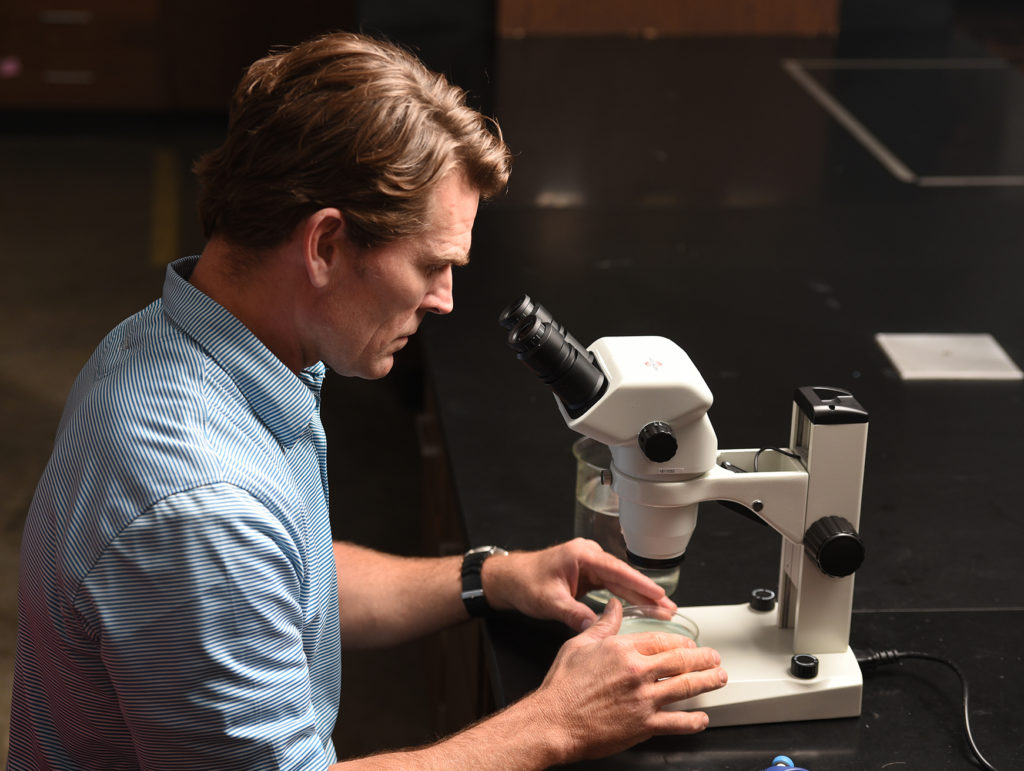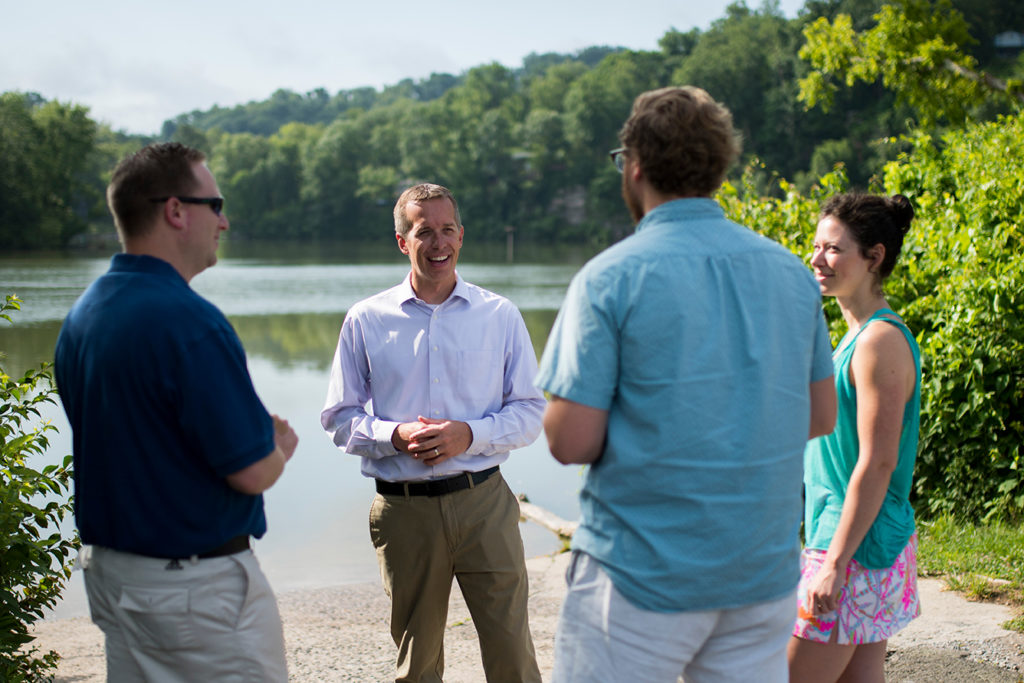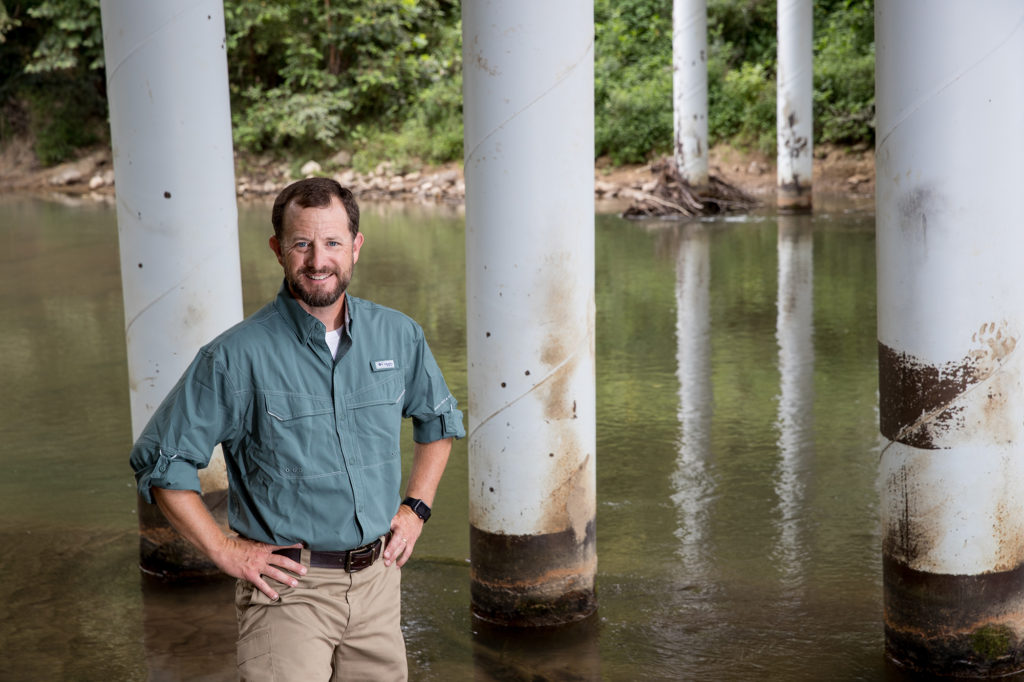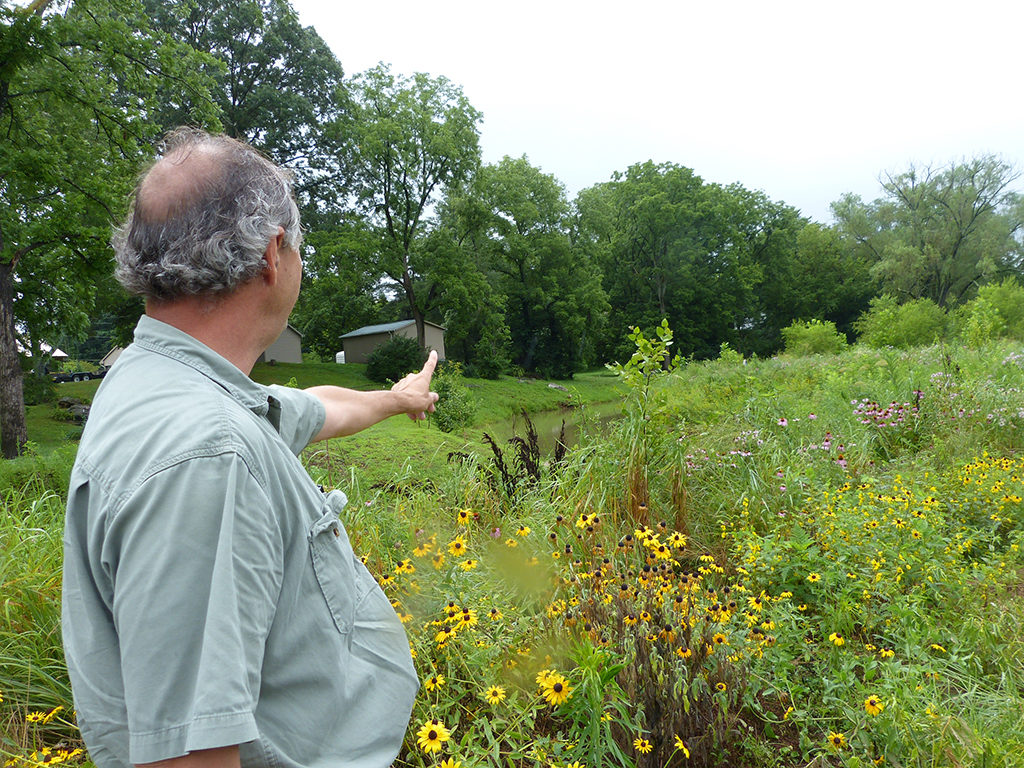
For 651 miles, the Tennessee River twists, turns and winds across the state of the same name, and even spills—metaphorically—across the fall issue of Tennessee Alumnus, the magazine for alumni of all University of Tennessee campuses.
Present problems and possible plans for the river—some proposed by UT students—make up the issue’s cover story, which is complemented by additional pieces on protecting, preserving and sharing an increasingly precious resource—water.
The fall issue is the award-winning magazine’s third in its centennial year for the publication. The Alumnus began in 1917 and has published continuously since then, putting it in a small group of university alumni publications. Each of the three 2017 issues has commemorated the 100th anniversary by publishing profiles of “Centennial Alumni,” 100 of the most-distinguished graduates of any UT campus. These luminaries from all fields represent more than 370,000 alumni across the country and around the world.
“Commemorating the magazine’s centennial has been a labor of love for all of us involved with it,” said Gina Stafford, UT assistant vice president and director of communications. “It’s been a pleasure to revisit highlights in the University’s history, to engage with alumni in seeking their recommendations for the ‘Centennial Alumni,’ and to be able to tell the stories of some of the both well-known and less-familiar, highly accomplished UT graduates.”
In the fall issue, UT experts discuss the future of Tennessee through the water running across and under the state. As that water goes, so goes the future for the people who depend on it. The current issue portrays the University’s role in helping that future go well.
UT experts featured in the magazine and available for interviews are:
Sean Richards, UT Chattanooga professor of biology, geology and environmental science.

PHOTO BY ANGELA FOSTER / UT CHATTANOOGA
Richards has found pharmaceuticals present in water in greater concentrations than pesticides. Pharmaceutical elements enter the water supply mainly through wastewater treatment plants because those facilities don’t filter out water-soluble molecules.
“However, pharmaceuticals receive far less attention because they are, by and large, agents of good (for humans). We don’t see them as poisons, but in fact, they are a very large input into the ecosystem.”— Sean Richards
Brad Collett (2001 UT Knoxville graduate), UT Knoxville associate professor of landscape architecture and UT Institute of Agriculture associate professor of plant sciences.

PHOTO BY ADAM BRIMER / UNIVERSITY OF TENNESSEE
“Through their research, students found opportunities to build on the (Tennessee) valley’s legacy of innovation. Understanding the river’s assets and thinking critically about what are the next century’s challenges laid the foundation for proposals that are both compelling and credible.”— Brad Collett
Stan Dunagan, UT Martin professor of geology.

PHOTO BY RAFFE LAZARIAN / UT MARTIN
“There will, at some point, be competition between cities and other private users of water, especially in West Tennessee, because in West Tennessee, we’re all going after groundwater.”— Stan Dunagan
Forbes Walker, UT Institute of Agriculture soil scientist with the institute’s department of biosystems engineering and soil science.
Walker is part of a 10-year effort to remediate the Oostanaula Creek watershed in McMinn County, Tennessee, to enhance and improve water quality and management.“It’s all about erosion, runoff and sedimentation versus filtration. We want to encourage water filtration through the ground, which naturally cleanses out pollutants, and reduce or prevent the loss of soil through erosion.”— Forbes Walker

PHOTO BY PATRICIA MCDANIELS / UT INSTITUTE FOR AGRICULTURE
He also is leading a $4.9-million effort funded by the U.S. Department of Agriculture to model how changes in temperature, drought patterns and flooding affect land use in the Tennessee and Cumberland river basins.
“The region is experiencing changes in weather patterns and intensities of weather events, be they storms or droughts. We’re working to predict ways in which farmers and cities can meet the challenges.”— Forbes Walker
The Tennessee Alumnus may be found at: alumnus.tennessee.edu.
The University of Tennessee is a statewide system of higher education with campuses in Knoxville, Chattanooga, Martin and Memphis; the UT Space Institute in Tullahoma; the UT Institute of Agriculture with a presence in every Tennessee county; and the statewide Institute for Public Service. The UT system manages Oak Ridge National Laboratory through its UT-Battelle partnership; enrolls about 50,000 students statewide; produces about 10,000 new graduates every year; and represents more than 370,000 alumni around the world.
Contacts
Gina Staffordstafford@tennessee.edu
865-974-0741
Jennifer Sicking
jsicking@tennessee.edu
865-974-5179
